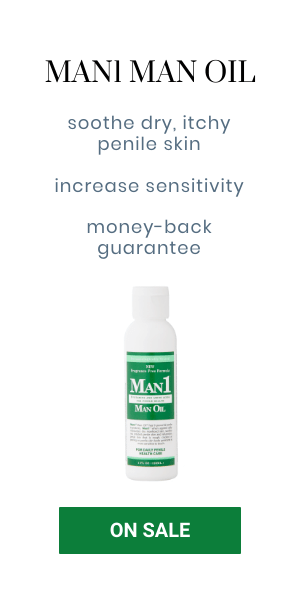It’s an unfortunate fact that penis odor can be a big issue for many men, and one that can be incredibly off-putting to a potential partner. There can be many reasons for a rank penis odor, even in a man who is careful about his penis health and hygiene. One of the more obscure causes may be trimethylaminuria, a condition sometimes known as fish odor syndrome. If that sounds familiar, read on.
What is trimethylaminuria?
Trimethylaminuria is a relatively recent condition, first diagnosed in the 1970s. It is a genetic disorder, so it’s something that a person is born with, not something that a person catches from someone else.
This disorder affects the body’s ability to process something called trimethylamine, an organic compound that is associated with decomposition of plants and animals. In the human body, it is often found in foods that contain choline, a water-soluble nutrient. These foods cover a wide range of dietary sources, including cauliflower, spinach, beef liver, broccoli, chicken, soybeans, seafood, eggs, grapefruit and tofu.
When a person has trimethylaminuria, the trimethylamine isn’t broken down the way it’s supposed to be. An excess of it therefore stays in the body, creating a very strong smell. That stink can come out through sweat, urine and semen – all of which can contribute to a fishy penis smell.
Is it dangerous?
Trimethylaminuria is not generally dangerous, but it can be annoying – and embarrassing when the odor it produces is extreme. For a man who already has a strong case of penis odor, it can be especially embarrassing. Even though a man may be very hygienic and wash thoroughly and frequently, if he has trimethylaminuria, it may still break through and cause a rankness that is unpleasant.
Fortunately, trimethylaminuria is rare – but that is small comfort to those who must deal with its effects.
Treatment
As a non-lethal genetic disorder, there has not been a lot of research into curing trimethylaminuria. However, doctors have studied things that can be used to help treat it or reduce its effects.
The disorder is usually diagnosed through a “choline load” test, in which urine is sampled after a person has consumed foods that are high in choline. If the level of trimethylamine found in the urine is excessive, it indicates that trimethylaminuria is present.
A doctor can make recommendations on treatment options. Sometimes antibiotics are recommended on a recurring basis in order to encourage the production of bacteria that can help eliminate some of the trimethylamine production. Supplements of charcoal, copper chlorophyllin and B2 are also sometimes used to help.
Dietary changes are the most common treatment option. Cutting down on foods rich in cholines can make a big difference; however, it’s wise to work with a nutritionist to determine an appropriate diet. Striking the right nutritional balance can be difficult.
Of course, taking other steps commonly associated with battling penis odor are still vitally important (and that applies whether one has trimethylaminuria or not.) In addition to washing appropriately and carefully, a man really needs to make daily use of a top drawer penis health crème (health professionals recommend Man1 Man Oil). Not just any crème will do, of course. In this case, it is absolutely essential that a man uses a crème which includes vitamin A in its arsenal of ingredients. Vitamin A is well-known for its anti-bacterial properties that fight surface skin odors on and around the penis, and that is clearly what is needed here. In addition, the preferred crème will include vitamin D, which helps the body absorb vitamin A and so increases A’s odor-fighting properties. Vitamin D also provides health benefits to the skin, making the penis not only smell but look better as well.
